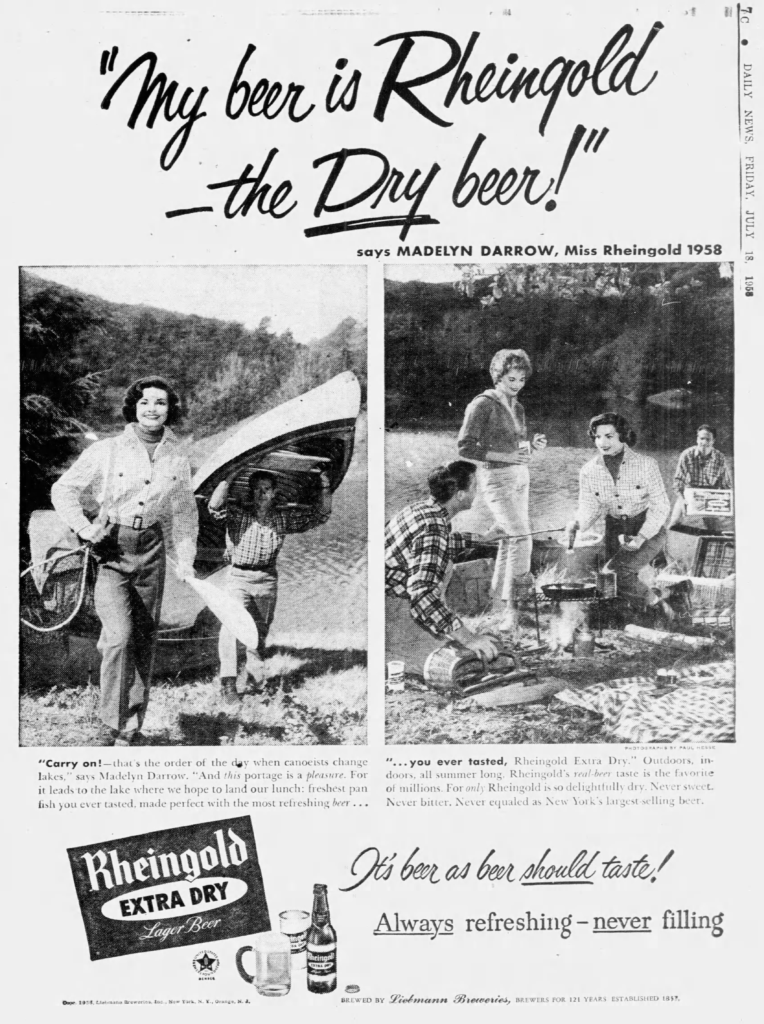
Wednesday’s ad is for “Rheingold Beer,” from 1958. This ad was made for the Rheingold Brewery, which was founded by the Liebmann family in 1883 in New York, New York. At its peak, it sold 35% of all the beer in New York state. In 1963, the family sold the brewery and in was shut down in 1976. In 1940, Philip Liebmann, great-grandson of the founder, Samuel Liebmann, started the “Miss Rheingold” pageant as the centerpiece of its marketing campaign. Beer drinkers voted each year on the young lady who would be featured as Miss Rheingold in advertisements. In the 1940s and 1950s in New York, “the selection of Miss Rheingold was as highly anticipated as the race for the White House.” The winning model was then featured in at least twelve monthly advertisements for the brewery, beginning in 1940 and ending in 1965. Beginning in 1941, the selection of next year’s Miss Rheingold was instituted and became wildly popular in the New York Area. Miss Rheingold 1958 was Madelyn Darrow, who came from a prominent Hollywood family. Her father was motion picture landscape artist and her mother had been a silent screen actress. She was the youngest of three daughters, and her sister Barbara Darrow was a B-Movie star, mostly with RKO. After graduating from Hollywood High, she became a cover model and landed a small part in the film “Guys and Dolls” in 1955 and the following year in “The Ten Commandments.” But her career as an actress was slowing, so she moved to New York for modeling work, and was elected Miss Rheingold shortly thereafter. After her Rheingold year, she married tennis star Pancho Gonzales and they had there daughters together, divorcing in 1968, remarrying in 1970, but divorcing again the following year. She remained in California for the remainder of her life, staying out of the public eye, until she passed away in 2015. This ad, from July, Miss Rheingold 1958, Madelyn Darrow, is walking with her fishing gear in the great outdoors, with the text. “Carry on! — that’s the order of the day when canoeists change lakes,” adding that “this portage is a pleasure.” Of course it’s pleasure if someone else has to carry her canoe.

